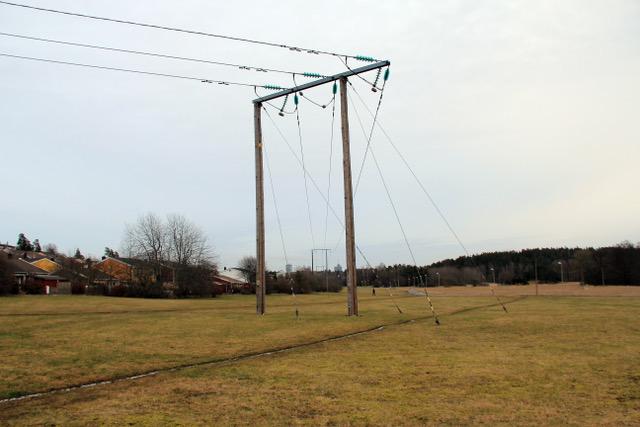Adrià Carbonell-Rabassa - Territorial Voids: An Inquiry on Metabolic Landscapes and Welfare Ecologies
Tid: Fredag 18 september 2020 kl 13:00 - 14:45
Plats: KTH School of Architecture 6th floor - Zoom link for the event to be announced
The seminar outlines Adrià Carbonell-Rabassa's PhD-project in Applied Urban Design.
Supervisors: Professor Ann Legeby (main) and Dr Daniel Koch (assistant).

Territorial Voids: An Inquiry on Metabolic Landscapes and Welfare Ecologies
Over the last decades, studies on urban landscapes, ecologies and metabolisms have emphasised the primordial role that infrastructures and unbuilt spaces play in processes of extended urbanisation, as well as the need to consider these systems an integral part of the contemporary urban space. In turn, a growing ecological concern has been raising awareness on the impact that urbanisation exerts in the environment, both in its industrial and extended variants, thus establishing a new understanding of city-nature relations and integrating in the analysis of urban fabrics questions of waste, energy, logistics or the pollution of soils and waters.
In its pervasive yet uneven development, regional urbanisation has left in its wake considerable unurbanized areas, or to be more precise, spaces unbuilt. Far from the mystic aura of the terrain vague, both in its concept and physically definition, these are spaces of a much larger size and scope that have emerged as a structuring element in territorial configurations. Instead of unprogrammed or unused spaces, these metropolitan or territorial voids hold multiple functions: productive, logistical, recreational or simply carriers of ecological and environmental values. Territorial voids are, therefore, not empty; in fact, they designate a very particular lack: that of buildings. They are not devoid of materiality nor use. Urban voids are otherwise full of materials and stories, activities and lives. They are equally embedded in urban plans and visions, as well as in legal documents and regulatory frameworks. Territorial voids are basically substantial parts of contemporary urbanities, of our thinking and experience of the urban condition, in most cases being the outcome of long processes of land management or exploitation.
In the Swedish context, the urban voids of peripheral suburban areas offer a highly significant case study to re-evaluate the role of unbuilt spaces as structuring elements of cities and regions. The notion of void was deeply embedded in both the aesthetics and the ideologies of Modern planning, not only in the ambition to create salubrious environments but also in the principles that informed a new type of spatial paradigm. By addressing the relation between landscape, ecology and urbanisation, the aim of this first seminar will be to scrutinize the notion of territorial void both as a concept and as particular type of space, and to examine the decisive role these voids had in the formation of Stockholm’s territorial system. Furthermore, it will highlight the relevance that landscape has had in defining modern and contemporary urban models, from welfare state ideals to ecological urbanism. Last, it will point towards the emergence of new cartographical methods and design approaches that operate at a territorial scale and that have shifted their focus from the built environment to the unbuilt, as far as to consider landscape itself an essential urban infrastructure, thus introducing in the analysis of the metropolitan space landscape methodologies, classifications and morphological types.